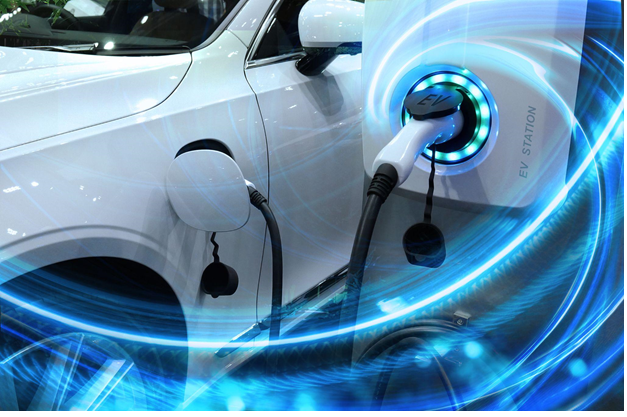Electric Car Chargers Are Deemed to Be Crucial to the UK in 2022 – Here’s All You Need to Know About Installing Them


Amidst the electric vehicle revolution, electric car charging points are seen as crucial to the UK’s success in 2022. According to the new government legislation, all new homes will be fitted with electric car chargers by 2021. For more information on the future of electric cars in the UK, see this article.
A Glimpse at Key EV Statistics
As each year passes, we continue to see an exponential rise in the sales of electric cars. In 2020 alone, the total sales of electric cars across the globe increased by more than 40%. By 2040, UBS, one of the biggest financial firms in the world, forecasts that only electric cars will be sold globally. With this estimated increase in electric vehicle demand, you might be asking “When will electric cars be affordable in the UK?” According to Bloomberg research, you can expect EVs to be cheaper by 2025 due to falling battery expenses.
These statistics highlight the growing demand for electric cars. As the market expands and more people own electric vehicles, there also comes a need to increase the number of electric vehicle (EV) charging stations.
Today, there are around 25,000 EV charging stations available for public use across the UK. This number is deemed not sufficient to cater to the demands of nearly 350,000 electric cars currently on UK roads.
To help meet the needs of hundreds of thousands of electric car owners, the UK government announced new legislation on EV chargers.
UK Mandates Installation of EV Charge Points by 2022
With the government’s latest EV charger legislation, new buildings in the UK, residential and non-residential alike, are expected to have EV charging stations. This effort towards a greener future is in anticipation of the UK’s decision to ban selling new diesel and petrol vehicles by 2030. This means a ban on non-electric cars by 2030 in the UK.
Currently, there are more than 250,000 charging stations installed on workplaces and residential buildings. Under the new legislation, the government is looking to install around 145,000 charging stations every year across England starting in 2022.
There are a lot of benefits to installing more EV charge points across the country. Firstly, it will help property owners prepare for a future with electric vehicles in mind. More EV charge points also mean more ease and convenience in terms of refuelling. Meanwhile, for businesses, an EV charging station can serve as a unique selling point, helping them gain an edge over their competition.
Indeed, this new legislation aims to bolster the electric vehicle revolution, starting with England.
How to Charge an Electric Car
· Charging Your Electric Car at a Public Charging Point
Across the UK, there are charging station networks that provide EV charging services for free. You can usually find them in supermarkets, service stations, and shopping centres. There are also networks that let you use their services for a price. How much you’ll pay will be based on the network’s payment models—if they have subscription or pay-as-you-go payment schemes—the type of your EV, and the kind of batteries you use.
· Charging Your Electric Car at Home
Another option to charging your electric car is by installing an EV charging point right in your home. There are many perks that you can get with a home EV charger. Aside from being convenient and cost-efficient, it can also add value to your property. Keep in mind that a home installation will require careful planning and consulting with experts to ensure that it goes as smoothly and safely as possible.
How to Install an EV Charging Point in Your Building
EV Charger Installation: Important Things to Know
Once you’ve decided that you’re going to install an EV charger in your home or building, the next step is to consider the following:
· Level of charging
There are various types of EV charging. The levels typically used for residential settings are Level 1 and Level 2. Level 1 chargers are often simple and straightforward to use, as they already come with your EV. They’re also compatible with 120-volt wall sockets. However, they’re known for their slow charging, which can take overnight. Level 2 chargers, on the other hand, require 240-volt outlets. An edge they have over Level 1 chargers is that they’re a lot faster to fully charge, taking up 6 hours to complete charging. There are also Level 3 chargers. These are more suitable for industrial and commercial settings, such as those found in public charging stations.
· Location of EV charging point
A trusted service provider can help you assess the best place where you can install your EV home charger. By going to your home or checking out site photos, they will be able to determine whether you can install the charger in your chosen location.
· Features of Your EV Charger
Take note of things like your EV charger’s cable length, durability, safety or compliance certification, and outdoor rating. These factors can also aid you when you’re selecting where to put your EV charger. For instance, if you’re aiming to charge your electric car in an outdoor parking area, a home charger that has an outdoor rating will come in handy.
· Installation costs
You must also consider your budget when looking to install an EV charger. The good news is that the government incentivises owners of electric cars through grants. By applying for a grant, you can get a discount of up to £350 when installing your home charger.
· Safety
Finally, safety is another important factor to consider when installing an EV charge point for your home. It’s vital that you find a service provider that you can trust on installing your EV charger safely and in compliance with regulations.
Install an EV Charger in Your Building with Edmont M&E
Installing an EV charger requires careful planning and assessment from industry experts. If you’re in or around the Wiltshire area, Edmont M&E can help you install an EV charging point for your building. Whether you require domestic, commercial, or subcontractor services, we offer an array of affordable options to assist you in preparing for the electric vehicle revolution.
Find tailored solutions for your EV charger installation needs and more.


